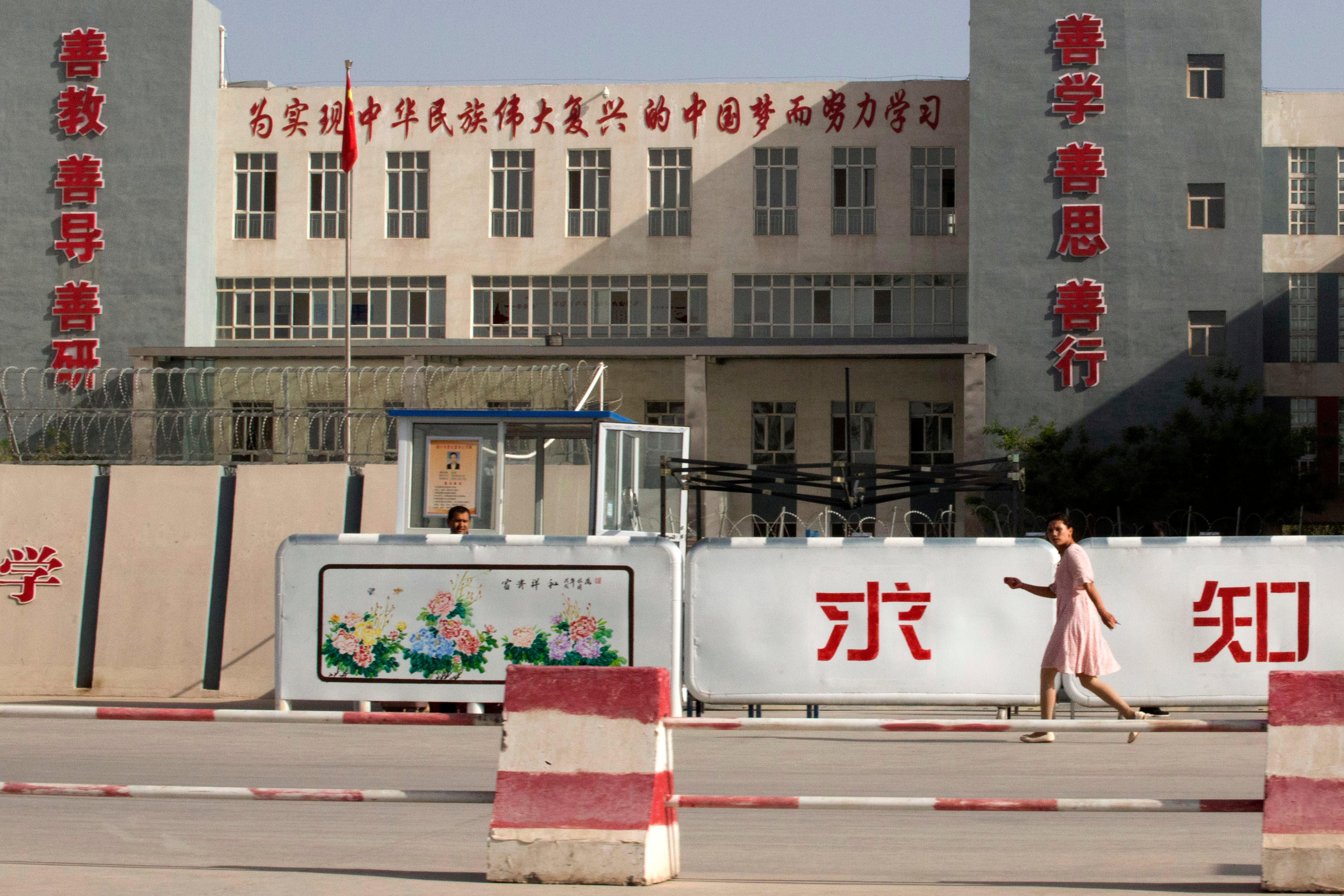China condemns 2 ex-Xinjiang officials on separatism charges
China has sentenced a former education official and a former legal official in the northwestern region of Xinjiang to death with a two-year reprieve on charges including separatism and bribe taking

Your support helps us to tell the story
From reproductive rights to climate change to Big Tech, The Independent is on the ground when the story is developing. Whether it's investigating the financials of Elon Musk's pro-Trump PAC or producing our latest documentary, 'The A Word', which shines a light on the American women fighting for reproductive rights, we know how important it is to parse out the facts from the messaging.
At such a critical moment in US history, we need reporters on the ground. Your donation allows us to keep sending journalists to speak to both sides of the story.
The Independent is trusted by Americans across the entire political spectrum. And unlike many other quality news outlets, we choose not to lock Americans out of our reporting and analysis with paywalls. We believe quality journalism should be available to everyone, paid for by those who can afford it.
Your support makes all the difference.China has sentenced a former education official and a former legal official in the northwestern region of Xinjiang to death with a two-year reprieve on charges including separatism and bribe taking.
Sattar Sawut and Shirzat Bawudun are the latest of many Xinjiang bureaucrats, almost all members of the Muslim Turkic Uyghur minority group, to be sentenced on national security charges in what China calls a campaign against “two-faced officials” who are seeking to undermine Chinese rule from within the system.
Such sentences are usually commuted to life in prison after two years with good behavior. Both men pleaded guilty and neither would file an appeal, said Wang Langtao, vice president of Xinjiang’s regional higher people’s court.
National security cases are heard behind behind closed doors and it wasn’t exactly clear when the men had been tried or when their sentences had been handed down. Sattar Sawut was detained in 2018. It was clear when Shirzat Bawudun had been held.
The court on Tuesday said Sattar Sawut, the the former head of the regional education department, “incorporated ethnic separatism, violence, terrorism, and religious extremism content into minority-language textbooks.”
“Sattar Sawut took advantage of compiling and publishing ethnic language textbooks for primary and secondary schools to split the country, starting in 2002. He instructed others to pick several people with separatist thoughts to join the textbook compilation team, the court found," the official Xinhua News Agency said, citing comments by Wang at a news conference.
Wang said Shirzat Bawudun, the former head of the Xinjiang regional justice department, was convicted of “splitting the country" for having colluded with the East Turkistan Islamic Movement and having “offered help to separatists and religious extremists, and collaborated with overseas separatist forces." The ETIM is listed as a terrorist group by the United Nations, although many experts question whether it exists in operational form.
Shirzat Bawudun met with ETIM representatives and encouraged others to join the group, Wang said. He also “carried out illegal religious activities at his daughter’s wedding" and accepted bribes totaling 11.12 million yuan ($1.7 million), Wang said.
Following terror attacks that killed thousands, China launched a sweeping security campaign in Xinjiang, detaining more than 1 million Uyghurs, Kazakhs and members of other minority Muslim groups in prison-like reeducation centers where they are told to denounce Islam and traditional culture, learn Mandarin Chinese and swear fealty to the ruling Communist Party and its leader, Xi Jinping.
That crackdown has been accompanied by the arrests of leading Uyghur academics and other public figures, mostly on charges of separatism.
China denies any abuses, saying the centers were aimed at teaching job skills and deradicalizing those influenced by anti-Chinese jihadi teachings. It says its policies have prevented any new terrorist attacks taking place for more than four years.
Beijing has also vociferously attacked claims of forced labor in factories and cotton fields and encouraged an unofficial public boycott of foreign companies that have spoken out on the matter. It calls U.S. sanctions against officials associated with persecution in Xinjiang a former of political persecution that will have no effect on government policy.
The court said textbooks approved by Sattar Sawut were used for 13 years, bringing “grave consequences." It said the 2003 and 2009 editions of the textbooks contained 84 passages preaching ethnic separatism, violence, terrorism and religious extremism and that several people were inspired by the books to participate in a bloody anti-government riot in the regional capital Urumqi in 2009.
Others, the court said, became inspired to become “key members of a separatist group headed by former college teacher Ilham Tohti," a Uyghur economist serving a life sentence on a separatism charge since 2014.
Sattar Sawut also abused his official positions to accept bribes worth 15.05 million yuan ($2.3 million), the court said.